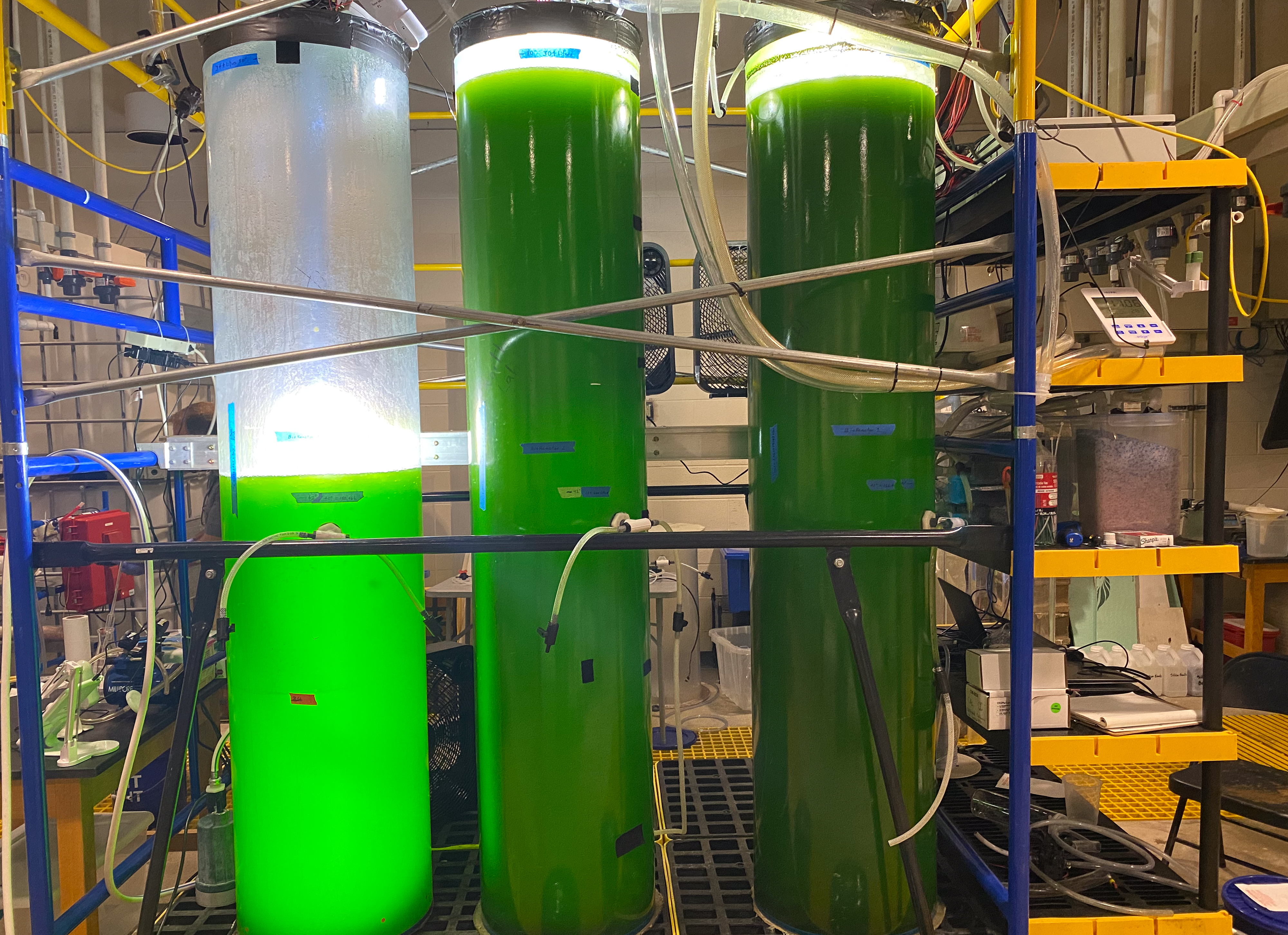
Courtesy of Elizabeth North

Courtesy of Elizabeth North
There is no life without water. We drink it, we bathe in it, we use it to build and grow. We cannot survive without it.
According to the United Nations, in 2022, two billion people worldwide did not have access to safe drinking water, and only 0.5 percent of water on the planet was usable freshwater. To help combat this water insecurity, we use desalination, a process implemented globally to increase the amount of fresh water available by removing salt and other pollutants from seawater and brackish water. Desalination, while an effective method of producing freshwater, is not without its challenges.
The process produces brine, a waste product of highly concentrated salt water. But what if this waste product could be used to create something positive?
Elizabeth North, Ph.D., a scientist and professor at the University of Maryland Center for Environmental Science, and her team of researchers are currently developing a biomanufacturing process that uses brine to produce calcium carbonate, a chemical compound needed in various industries.
To continue reading, click on the full story below!
The research team is led by UMCES Professor Elizabeth North with co-Principal Investigator Ryan Hoover from the Maryland Institute College of Art as well as collaborators from Purdue University, Salisbury University and Facilitated Solutions, LLC. This project is funded by the National Science Foundation’s Convergence Accelerator (https://new.nsf.gov/funding/initiatives/convergence-accelerator) program. Launched in 2019, the NSF Convergence Accelerator builds upon NSF’s investment in basic research and discovery to accelerate solutions toward societal and economic impact.
Mykal Bailey is a rising junior at Howard University. She is studying film and political science, and is a passionate advocate for environmental justice and climate solutions.
Additional reporting by Emma Marold, rising senior at SUNY-ESF, majoring in Environmental Studies.
This story was produced as part of the Planet Forward Summer Seminar in Multimedia Storytelling.